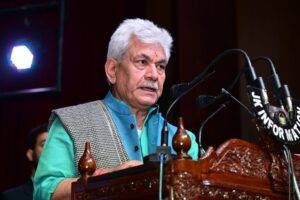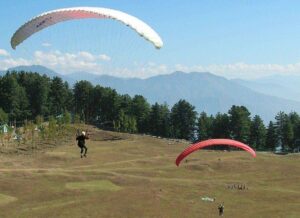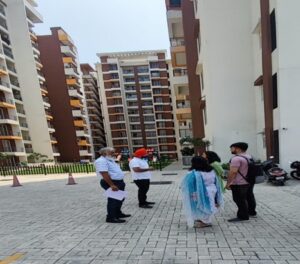Last Updated on October 3, 2020 at 11:35 pm
In 1947, when Britishers left the India then it was just a collection of hundreds of princely states with no sense of nationalism or unity in them.
Sardar Vallabhbhai Patel brilliantly managed to tie them up under a single thread of India. But, still unfortunately, three provinces namely, Hyderabad, Junagadh and Kashmir were not convinced enough to join India. Two of these three regions became part of India like every other state but Kashmir didn’t really toe the line.
It joined with some special demands which were granted to them under two articles of the Indian constitution. These were Articles 370 and 35A. Under article 370, Jammu and Kashmir have a significant autonomy to the point that Jammu and Kashmir can even have its own separate flag and have independence on most of the internal matters except foreign affairs, defense and communication.
Article 35A was added later in 1954, which gave special privileges to the permanent residents. Most significant of these rights was that only the local residents could own or purchase the land in that area.
On 5th August of 2019, Home Minister Amit Shah announced the revocation of both the Articles 370 and 35A from the constitution robbing the territory of its special rights and making it as common as others. While BJP leaders like Yogi Adityanath and Devendra Fadnavis lauded the government’s efforts to “integrate” Kashmir to India, these “integration” efforts didn’t go very well with the people of Kashmir and their political leaders.
PDP MP Mir Mohammad Fayaz teared a copy of Indian constitution in Rajyasabha in protest against the government’s decisions. Sajjad Ghani Lone, chairman of the Jammu and Kashmir People’s conference, voiced strong opposition to repelling of the mentioned articles. He called it as one of the darkest days in the lives of family since 1957.
PDP’s chief Mehbooba Mufti used twitter to voice her disapproval. She tweeted, “Today marks the darkest day in Indian democracy. Decision of J&K leadership to reject 2 nation theory in 1947 & align with India has backfired. Unilateral decision of GOI to scrap Article 370 is illegal & unconstitutional which will make India an occupational force in J&K.” She was put under house arrest before the Rajya Sabha proceedings took place.
“It will have catastrophic consequences for the subcontinent. GOIs intentions are clear. They want the territory of J&K by terrorising it’s people. India has failed Kashmir in keeping its promises.” Added the former ally of BJP and ex-CM of the former state.
Omar Abdullah, former CM of the state and National Conference leader, said that the decision is a betrayal of the trust of the people of Jammu and Kashmir. They trusted India when they ceded control of the territory to the nation that their upcoming generations will continue to enjoy special rights.
Since the decision was hegely unpopular in the local masses, the government tried hard to muzzle voices of the dissent.
The government imposed a blanket ban on the internet services within the region from August 5 itself in order to “better integrate the region with India and stop threats from anti-national elements”. 2G internet services started from January 25 of the next year. The government restarted high-speed mobile data services in two districts of Ganderbal and Udhampur on a trial basis.
According to the Jammu and Kashmir administration’s decision of 30th September, high-speed mobile internet services will continue to suspend atleast till 21st October except two districts.
Currently, broadband services are functioning in all the 20 districts of Jammu and Kashmir. But, other than that mobile data speed is restricted to that of 2G. When the pandemic brought indefinite lockdown to all the parts of the nation, the need for digital schooling or online education grew rapidly. When asked about the same in Jammu and Kashmir, the centre defended the partial internet blockades and said that the 2G internet is sufficient for digital education.
Along with suspending normal internet, the central government also detained many prominent political voices of the former state. Over 30 political leaders were put under house arrest after the abrogation of Articles 370 and 35A under the garb of maintaining peace within the region.
The list included Farooq Abdullah, three-time CM and former Union minister, Mehbooba Mufti, former CM of J&K, Omar Abdullah, former CM and Minister of State for External Affairs, Sajad Lone and Junaid Mattu.
From August 5, Farooq Abdullah was detained under Public Safety Act (PSA) in his house. He was released after seven months on 13th March, 2020. In the case of Omar Abdullah, when his six-months custody under preventive detention was about to end in February, the government revoked PSA against him. He was released on 24th March.
Mehbooba Mufti was also detained under PSA on August 4 last year. As the PSA allows detention without trial for upto three months, the central government kept renewing the act. Last CM of the former state is still under detention as it has been renewed thrice now – on 5 February, 5 May and 31 July. After Mehbooba’s daughter Iltija challegend the government’s orders of detention, the Supreme Court told the government on 28 September 2020 that a person could not be kept in preventive detention forever.
Professor and senior Congress leader Saifuddin Soz alleged that he was detained in his house while the Centre refused. When his wife Mumtaz-un-Nisa Soz complained to the Supreme Court, the Jammu and Kashmir administration told the apex court that Soz was “never detained nor under house arrest and there are no restrictions on his movement subject to security clearances.” The Court took the government’s stand as a fact and closed the case. Hours later, Saifuddin Soz was seen standing behind a wall in a viral video in which he was telling the reporters that the government lied to the Supreme Court and he was not a free man. Soon enough, some men probably wearing a police uniform takes him inside the house and warns reporters of the consequences.
The government silenced the voices of dissent in order to tick off Kashmir in their wish-list.



